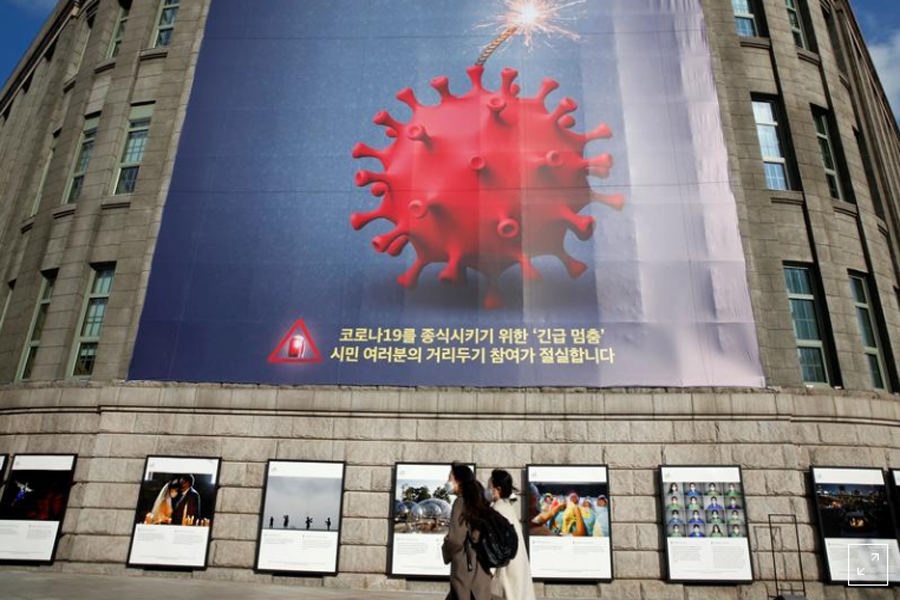South Korean authorities urged vigilance on Saturday as small coronavirus clusters emerged in a third wave, centred in the Seoul area, with infections near nine-month highs, reports Reuters.
The Korea Disease Control and Prevention Agency (KDCA) reported 583 new coronavirus infections, down from the 629 reported on Friday, which was the highest since the first wave peaked in February and early March.
After implementing tighter restrictions on Saturday, the government is to decide on Sunday whether to further tighten curbs in a country that had seen initial success through aggressive contact tracing and other steps.
Infections of the virus that causes COVID-19 averaged 487.9 this week, up 80 cases from the week before. This wave of infections is different from the first two, which were driven by large-scale transmission, said KDCA official Lim Sook-young.
“The recent outbreaks are small, multiple and is spread in people’s everyday lives,” Lim told a news briefing. “Please keep in mind that the current wave is not limited to a specific group or place but may be around our homes, family and acquaintances.”
Seoul accounted for 235 of the new infections. More than half of South Korea’s 52 million people live in the capital and surrounding areas.
Among Seoul’s small but widespread clusters, confirmed cases linked to a dance class rose by nine to 249 in less than two weeks, while 21 people tested positive in a cluster related to a wine bar.
Seoul launched unprecedented curfews on Saturday, shuttering most establishments and shops at 9 pm (1200 GMT) for two weeks and cutting back public transportation operations by 30 per cent in the evenings.
Tighter restrictions would be a blow to Asia’s fourth-largest economy, which reported a seasonally adjusted unemployment rate of 4.2 per cent in October, the highest since July.
The number of people seriously or severely ill with COVID-19 rose by five to 121, using more of the nation’s swindling sickbeds, KDCA reported.
The health authorities said on Friday there were just 59 sickbeds immediately available for serious or severe cases and that the beds might run out in less than two weeks.
South Korea has reported 36,915 coronavirus infections and 540 deaths, the KDCA said.


